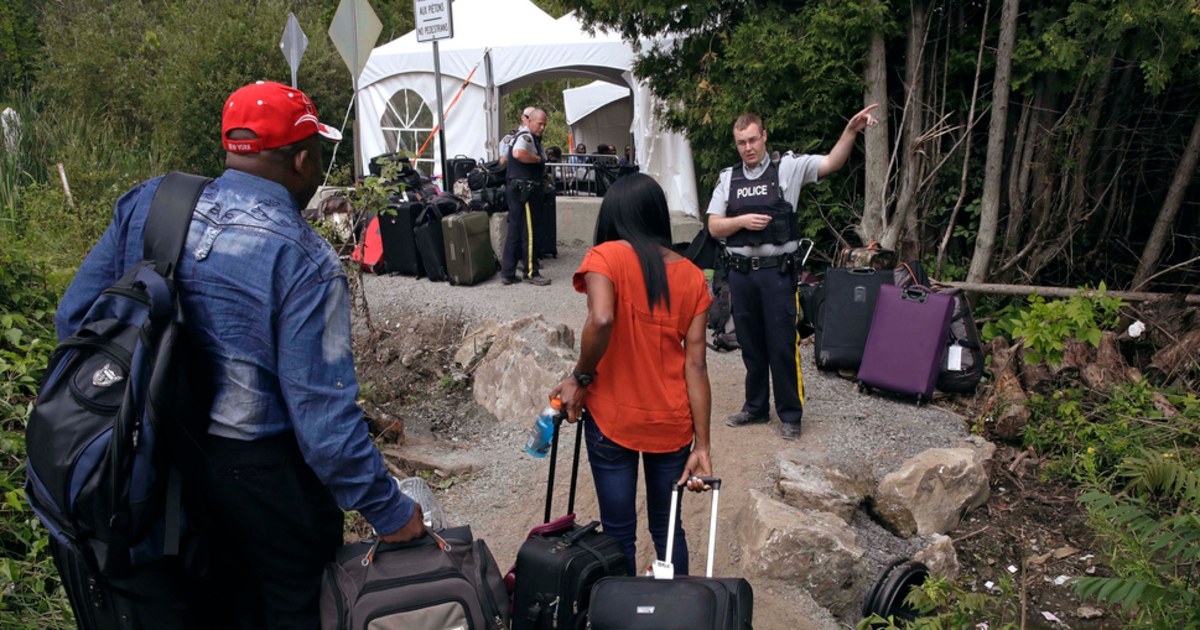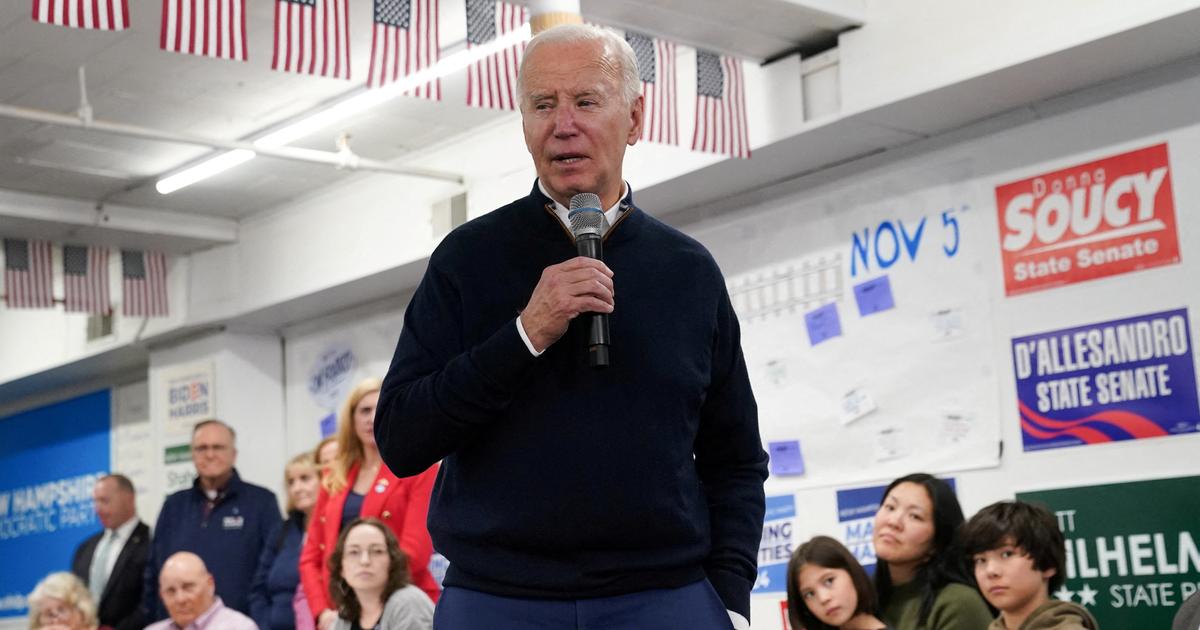Instead of personal attacks as in the past, there were congratulations from Donald Trump: He congratulated Justin Trudeau on a "wonderful and hard-fought victory," the US president wrote on Twitter. Canada was well served by the outcome of the parliamentary elections.
Meanwhile, it is clear: Trudeau will be able to continue his government project almost certainly in a second term. His Liberals became the strongest force in the parliamentary elections in Canada.
Congratulations to @JustinTrudeau on a wonderful and hard fought victory. Canada is well served. I look forward to working with you towards the betterment of both our countries!
- Donald J. Trump (@realDonaldTrump) October 22, 2019Voters said his party had "a clear government mandate," Trudeau said when he stepped in front of his supporters in Montreal on election night. "They voted for a progressive agenda."
However, the prime minister blared out that he got with his Liberal Party significantly fewer seats than in the 2015 election and lost his absolute majority. Election day confirmed what had emerged during the election campaign: Trudeau lost glamor in the eyes of many Canadians.
Ryan Remiorz / The Canadian Press via AP
Canada's Prime Minister Justin Trudeau with wife Sophie Gregoire Trudeau: "for a progressive agenda"
"Trudeau has failed as a figurehead of modern politics a bit," says Christian Lammert, political scientist at the Free University (FU) Berlin with a focus on North America, the SPIEGEL. "He was unable to mobilize, especially among younger voters."
So the parties cut off
According to preliminary results, Trudeau's liberals are taking 157 out of 338 parliamentary seats . Their lead over the Conservatives is greater than current polls would suggest before the election. Some observers attributed this in part to the election recommendation made by ex-US President Barack Obama a few days before the election in favor of Trudeau. However, with the result not only the party of the prime minister remains well below the 170 seats required for an absolute majority, but far behind its result from the year 2015 (184 seats).
The Conservatives won the most votes, but because of the direct election system but significantly fewer seats than the Liberals: 121 according to forecasts. Your candidate Andrew Scheer announced in the election night full-bodied: "We are the government in wait." Trudeau was struck, his government would soon be over.
Todd Korol / Reuters
Andrew Scheer: "Government in wait"
But the defeat of the Conservatives in Canada is also attributed to the weakness of Scheer as a challenger. The party could have benefited from the weakness of the liberals, but this also because of their "little charismatic candidate" failed, says political scientist Lammert.
A big election winner are the separatists from the Bloc Québécois . The party, which makes only candidates in the French-speaking province, has returned its traditional demands for independence in the election campaign. She is expected to get 32 seats in parliament - more than three times as many as in 2015.
The Social Democratic NDP under Jagmeet Singh, the first non-white leader of an important party in Canadian history, is well below expectations with 24 seats (compared to 44 four years ago). Since the Liberals have missed the absolute majority, the party could still exert significant influence on government work in the future.
Darryl Dyck / The Canadian Press via AP
NDP boss Singh and his wife: "constructive and positive" role
The Greens are making gains and bring with probably three seats their best ever result. However, they could not benefit from the frustration with Trudeau's climate policy among left and young voters to the hoped-for level.
What's next?
As coalition governments are uncommon in Canada, it is likely that a minority government will be formed under Trudeau. That's not unusual in the country. To govern, the liberals around Trudeau must actively seek majorities, such as the Social Democrats or the Bloc Québécois.
Andrey Ivanov / Reuters
Yves-François Blanchet, boss of the Bloc Québécois: the big election winner
NDP boss Singh has already spoken with his own account with Trudeau. He announced to play a "constructive and positive" role. Yves-François Blanchet, head of the Bloc Québécois, said: "If what is proposed is good for Quebec, then the Bloc Québécois will support it." The regional party could cooperate with any government under these conditions.
However, according to Jean Michel Turcotte, Canada expert at the FU Berlin, the government work for Trudeau should still be difficult. For the next twelve to eighteen months, he expects cooperation with the smaller parties, but no major reform projects, says Turcotte the SPIEGEL. In the aftermath, it could come to a failure of the government. In the past, Canadian minority governments have typically held for 18 to 22 months.
Trudeau has announced that he will continue his policy. These included the fight against gun violence and, above all, against climate change, "the greatest challenge of our time". The latter wants to push the prime minister in the future more. On the one hand.
On the other hand, on election night, Trudeau also vowed to govern "for all Canadians". Certainly a phrases, but - as the past few months have shown - no matter of course. The election campaign, marked by personal attacks, has revealed trenches in Canadian society, not least regional ones.
In Alberta and Saskatchewan, the oil-producing provinces in the west of the country, Trudeau's liberals did not get a single mandate. There, the head of government's resistance to the climate plans will remain unchanged, says Canada expert Turcotte.
"I've heard your frustration, and I want to support you," Trudeau shouted to the residents of these provinces of Montreal. Now the prime minister needs to find a balance between their concerns and their agenda.


/cloudfront-eu-central-1.images.arcpublishing.com/prisa/G4OEMXTF6RR2AKIQQXRTVTF37U.jpg)


/cloudfront-eu-central-1.images.arcpublishing.com/prisa/Y3OO7L2MGUGR5X2A7MOEHZAMEM.jpg)








